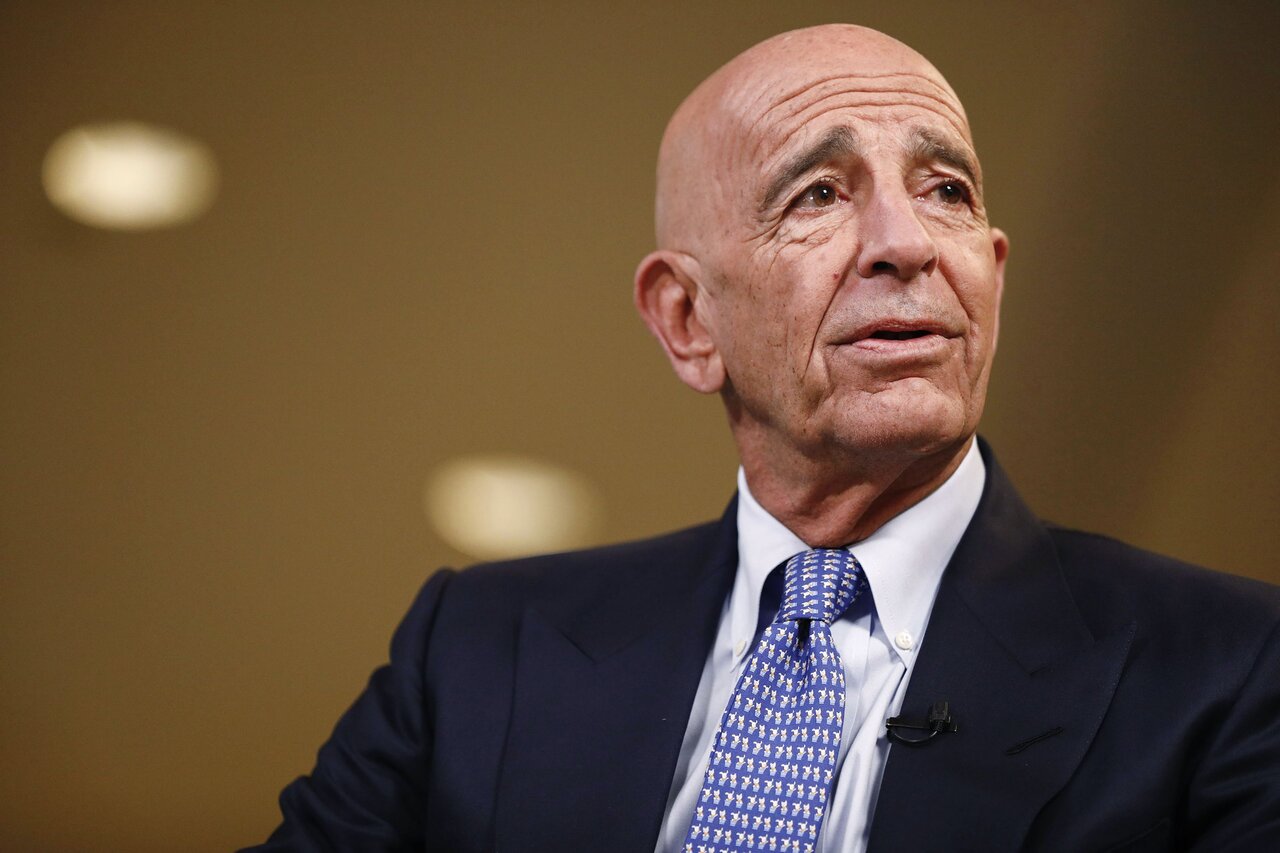Lebanese cabinet to convene next week on arms monopoly

BEIRUT— The Lebanese cabinet is scheduled to convene next Tuesday in response to US envoy Thomas Barrack’s recent threat on X that says: “As long as Hezbollah retains its weapons, words will not suffice. The government and Hezbollah must fully engage and act now.”
Meanwhile, US President Donald Trump’s nominee for ambassador to Lebanon, Michel Issa, announced before the US Senate Foreign Relations Committee that if his appointment is confirmed, he will work to ensure the full restoration of Lebanon’s sovereignty in a way that “disarming Hezbollah is not optional, but necessary, and the time to act is now.”
In response to questions from US senators, Issa likened Hezbollah to “a wounded bear that can still hurt.”
He added, “Hezbollah is trying to buy time because parliamentary elections will be held next year, and it fears losing these elections if it gives up its weapons. Secondly, because Hezbollah is not the one who makes the decisions, but Iran is. Its loyalty is never to Lebanon, but always to Iran, and Iran does not care what happens to the Lebanese people.”
The nominee for ambassador said Hezbollah is aware that if it does not abandon its weapons there will be consequences. “Hezbollah knows that if it does not surrender its weapons, something will happen. I do not know what will happen, but something must happen.”
The cabinet session will address “the implementation of the ministerial statement,” according to Prime Minister Nawaf Salam who has sought to convene the session since his return from Paris and meeting with President Macron.
Salam tried to convince President Joseph Aoun of the need to convene the session quickly before he leaves for Algeria, but the latter “still believes that the conditions are not yet ripe for holding the session,” according to sources.
In parallel, Lebanese officials were informed through various diplomatic channels that Israel refused to cease hostilities and that US presidential envoy Thomas Barrack would not be returning soon, according to Reuters.
Reportedly, Washington and Tel Aviv are hinting that the next war may not be against Hezbollah alone, and that the state may not be neutral if the authorities fail to take the necessary decisions and measures, and seriously address the resistance movement’s weapons.
In turn, Lebanese Forces leader Samir Geagea warned against delay in disarming Hezbollah. He stated that “Lebanon faces two options: the first is a government decision to dissolve the military and security organizations, or face a hot summer, or at best, a bad summer.”
In an interview with Al-Jumhuriya, Parliament Speaker Nabih Berri approached the negotiations with Barrack cautiously and realistically, not concealing his deep annoyance with those who deliberately exaggerate the possibility of a large-scale war against Lebanon, saying, “It is surprising and contradicts the spirit of national responsibility.”
Berri praised Aoun’s approach to the negotiations and weapons issue, noting “the way he is handling this issue is good.”
Salam told Aoun, “Macron said frankly that Israel will not wait long and that Lebanon must now take practical steps to address the situation, and that Paris is also pressing for a government session.”
According to sources, Paris is pressuring Lebanon to comply with American demands under the pretext of addressing “urgent needs,” such as UNIFIL’s operations in the south, where Israel is demanding fundamental changes to its operational mechanisms, imposing complete freedom to operate without coordination with the Lebanese Army, and conducting its own inspections to prevent the presence of weapons or militants.
Israeli threats against Lebanon are being promoted by the Hebrew press and the IDF (or better say IOF) spokesperson with the aim of perpetuating the narrative of a breach of the ceasefire agreement.
Maariv published a report that serves the same narrative (and even justifies a new aggression against Lebanon), citing officers in the IOF’s Northern Command who stated that “Hezbollah has not been defeated, but is merely licking its wounds. Without organization or deterrence, it may recover and return stronger and more dangerous.”
The Israeli newspaper said “Israel is considering several scenarios that the Radwan Force may attempt to carry out any day: small raids, attempts to launch major attacks, including attempts to attack a small IDF military force, and even the kidnapping of soldiers.”
Maariv concluded that “Hezbollah possesses secret capabilities and facilities, but they are not similar to what is happening in Gaza.”
For its part, Alma (Hebrew think-tank) published a report discussing the IOF’s intention to “continue its policy of assassinations aimed at preventing the emergence of a new Hezbollah leadership.”
The report stated that “Israel must work to increase pressure on Hezbollah by targeting its civilian base,” referring to the possibility of targeting cadres outside Hezbollah’s military structure.
The warnings coming from the Israeli entity to Lebanon are complemented by diplomatic means; UN Special Coordinator for Lebanon Jeanine Hennis-Plasschaert, who visited the occupied Palestinian territories last week, expressed fears of an Israeli intention to intervene directly to prevent Hezbollah from rebuilding its capabilities, under the pretext that the Lebanese response to Barrack’s proposal was not commensurate with Israeli desires.
Leave a Comment